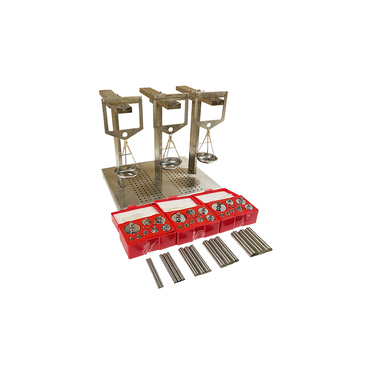Suppliers of Smoke Density Testing Chambers for Enhanced Safety Compliance and Quality Assessment
Understanding Smoke Density Test Chambers and Their Suppliers
In industries such as construction, aerospace, and automotive, the safety standards regarding flammability and smoke emissions have become increasingly stringent. One of the critical tools employed to evaluate these properties is the smoke density test chamber. This specialized equipment measures the amount of smoke produced by materials during combustion, offering vital information that helps manufacturers comply with safety regulations and ensure the performance quality of their products.
What is a Smoke Density Test Chamber?
A smoke density test chamber is an enclosed environment where materials are subjected to controlled ignition conditions to assess their smoke emission levels. This equipment simulates real-world scenarios, allowing industries to gauge how materials behave when exposed to fire. The chamber typically includes features such as smoke measurement sensors, ventilation systems, and safety mechanisms to protect operators during testing.
These chambers are essential in various applications, including testing construction materials, textiles, plastics, and electronic components. The key output from these tests is the optical density of smoke generated, typically measured in terms of specific standards like ASTM E662 or ISO 5659. The results not only indicate how much smoke a material emits but also how quickly it produces smoke, which is crucial for understanding potential hazards during a fire.
Importance of Selecting the Right Supplier
Choosing the right supplier for smoke density test chambers is crucial for ensuring the accuracy and reliability of the tests. An ideal supplier should offer high-quality equipment that meets regulatory standards and provide robust technical support. When evaluating potential suppliers, consider the following factors
smoke density test chamber suppliers

1. Quality of Equipment The chamber should comply with international test standards and employ precise measurement tools. Quality construction ensures longevity and reliability during rigorous testing.
2. Customization Options Every industry has unique needs. Suppliers who offer customizable solutions can better meet specific requirements regarding size, capacity, and additional features.
3. Technical Support A reputable supplier should provide comprehensive support, including installation, calibration, and user training. This support ensures that customers can effectively operate the equipment and interpret the results accurately.
4. Customer Reviews and Reputation Researching a supplier's history and customer feedback can offer insights into their reliability and the performance of their products. Established suppliers generally have a track record of satisfied customers and successful installations.
5. Industry Expertise Suppliers with a strong background in fire testing and material science can offer valuable insights and assistance beyond just providing equipment. Their expertise may include recommendations on best practices for testing and understanding regulatory requirements.
Conclusion
As the demand for enhanced fire safety standards continues to rise, the importance of smoke density test chambers cannot be overstated. These chambers play a vital role in assessing the flammability of materials and ensuring compliance with safety regulations. Selecting the right supplier is critical to obtaining reliable and accurate testing results. By considering factors such as equipment quality, customization options, technical support, and supplier reputation, industries can make informed choices that contribute to safer products and environments. In the world of material testing, investing in the right smoke density test chamber and supplier is not just a choice; it's a crucial step towards ensuring safety and reliability in the products we rely on daily.
-
Why the Conductor Resistance Constant Temperature Measurement Machine Redefines Precision
NewsJun.20,2025
-
Reliable Testing Starts Here: Why the High Insulation Resistance Measuring Instrument Is a Must-Have
NewsJun.20,2025
-
Flexible Cable Flexing Test Equipment: The Precision Standard for Cable Durability and Performance Testing
NewsJun.20,2025
-
Digital Measurement Projector: Precision Visualization for Modern Manufacturing
NewsJun.20,2025
-
Computer Control Electronic Tensile Tester: Precision and Power for the Modern Metal Industry
NewsJun.20,2025
-
Cable Spark Tester: Your Ultimate Insulation Assurance for Wire and Cable Testing
NewsJun.20,2025
 Copyright © 2025 Hebei Fangyuan Instrument & Equipment Co.,Ltd. All Rights Reserved. Sitemap | Privacy Policy
Copyright © 2025 Hebei Fangyuan Instrument & Equipment Co.,Ltd. All Rights Reserved. Sitemap | Privacy Policy
